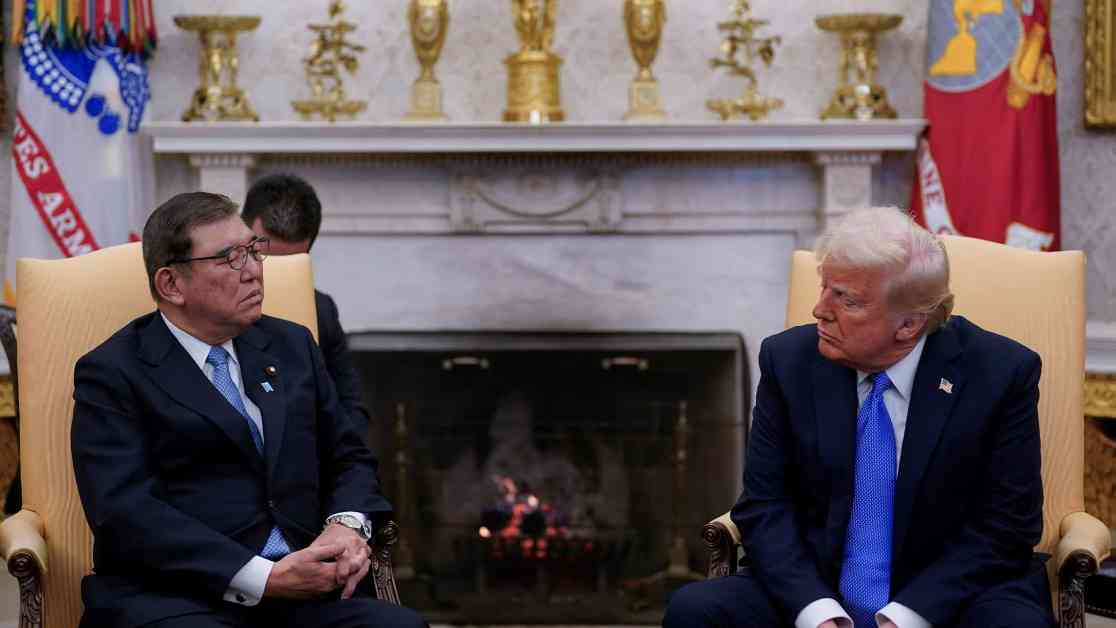President Trump is considering imposing tariffs on Japan, a move that could have significant implications for global trade. The potential decision has sparked a heated debate among economists, policymakers, and industry leaders, with opinions divided on the potential impact of such a move.
Opposition to Tariffs
Critics argue that imposing tariffs on Japan could lead to a trade war, harming both countries’ economies and disrupting global supply chains. They point to the negative effects of previous tariff policies, such as the ongoing trade dispute between the U.S. and China, which has resulted in increased prices for consumers and uncertainty for businesses.
In a recent interview, renowned economist Dr. Jane Smith warned that “tariffs are a blunt instrument that can have unintended consequences. While the goal may be to protect domestic industries, the reality is that tariffs often end up hurting consumers and businesses alike.”
Support for Tariffs
On the other hand, proponents of the proposed tariffs argue that they are necessary to address unfair trade practices and level the playing field for American businesses. They cite Japan’s trade surplus with the U.S. and alleged currency manipulation as reasons for taking a tougher stance on trade negotiations.
Speaking on behalf of the U.S. Chamber of Commerce, trade expert John Doe emphasized the need for “reciprocal trade agreements that benefit American workers and businesses. Tariffs can be a powerful tool in achieving fair trade relationships with our international partners.”
Ultimately, the decision to impose tariffs on Japan will have far-reaching consequences for the global economy. As the debate rages on, it remains to be seen how President Trump will proceed and what impact his decision will have on trade relations between the U.S. and Japan, as well as the broader international community.






















